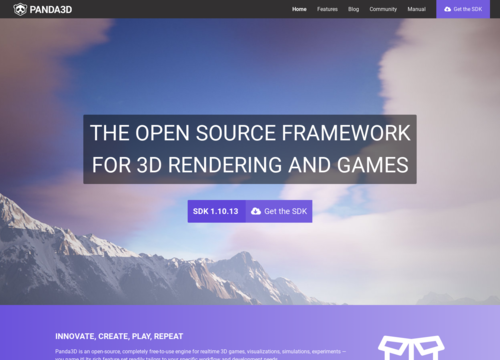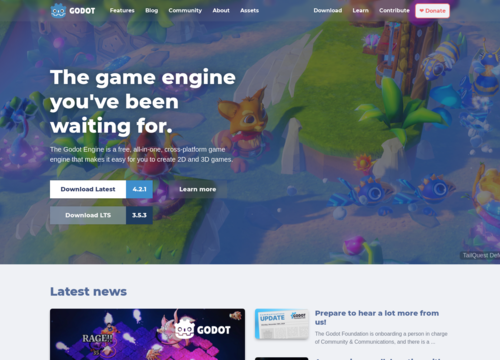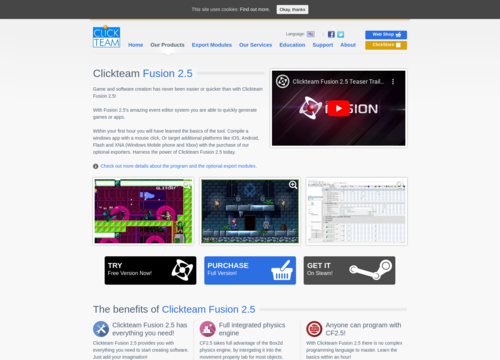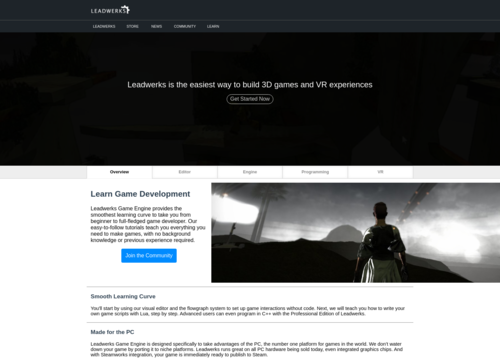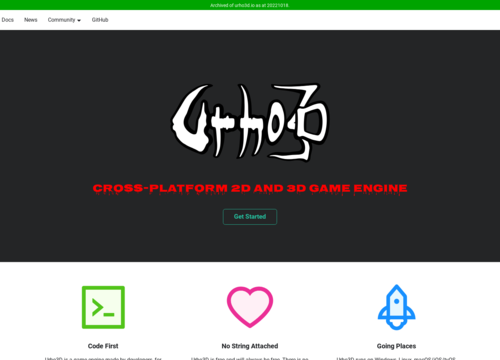Panda3D
https://www.panda3d.org/Panda3D
Panda3D is an open-source, cross-platform game engine primarily designed for the development of 3D games. It was originally developed by Disney for their massively multiplayer online game "Toontown Online" but was later released to the public. The engine is known for its flexibility and ease of use, especially in handling 3D graphics.
One of the key features of Panda3D is its use of Python as the primary scripting language, which makes it accessible to developers with varying levels of experience. Python's ease of use and readability, combined with Panda3D's powerful features, allow for rapid development of complex games and simulations. Developers can write their game logic in Python while benefiting from the speed and efficiency of the engine's core, which is written in C++.
Panda3D supports a range of graphics features like shaders, particle systems, and advanced rendering techniques, making it suitable for creating visually appealing environments. It also includes support for audio, physics, and collision detection, providing a comprehensive toolkit for game development.
Another significant aspect of Panda3D is its active community. The community contributes to the development of the engine, offering support, tutorials, and plugins. This collaborative environment fosters learning and innovation, making Panda3D a dynamic platform for game development.
Panda3D's versatility extends beyond games; it's used in simulations, virtual reality projects, and educational tools. Its ability to handle complex 3D graphics with relative ease makes it a popular choice for projects requiring real-time 3D rendering.
Panda3D's architecture is another aspect that deserves mention. The engine is designed to be as modular as possible, allowing developers to plug in custom components or replace existing ones as needed. This modularity extends to the rendering pipeline, where developers can tweak or completely overhaul how the engine processes and displays graphics, providing a high degree of control over the game's visual output.
The engine also has a robust asset handling system. It can import a wide range of 3D model formats, textures, and animations, facilitating the integration of assets created in popular 3D modeling software. This feature is crucial for a smooth workflow, particularly in teams where different members might be using different tools for asset creation.
Panda3D's support for various platforms is another key strength. It can deploy games and applications on Windows, macOS, and Linux, providing a broad reach for developed projects. This cross-platform capability is essential in today's diverse computing environment and is a significant advantage for developers aiming for a wide audience.
Documentation and learning resources are vital for any software tool, and Panda3D shines in this regard as well. The engine comes with extensive documentation, including a detailed manual, API reference, and a collection of sample projects. These resources are invaluable for both beginners learning the engine and experienced developers looking for advanced features or troubleshooting information.
Panda3D's performance is also noteworthy. Despite being highly accessible and easy to use, it does not compromise on performance. The engine efficiently handles large-scale 3D environments and complex interactions, making it suitable for demanding applications beyond casual games.
Lastly, being an open-source engine, Panda3D offers the transparency and flexibility that many developers appreciate. Users can dive into the engine's source code to understand its inner workings, contribute to its development, or tailor it specifically to their project's needs.
Panda3D is a versatile, powerful, and user-friendly engine suited for a wide range of 3D applications. Its combination of Python scripting, comprehensive features, cross-platform support, active community, and open-source nature makes it an attractive option for game developers, educators, and researchers alike.




















